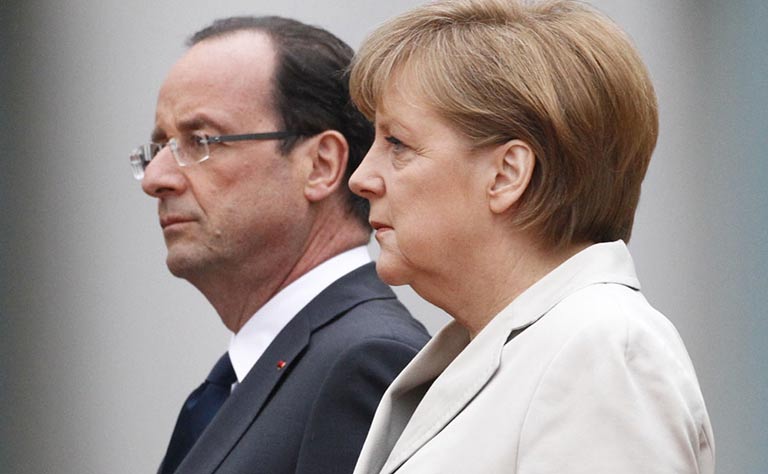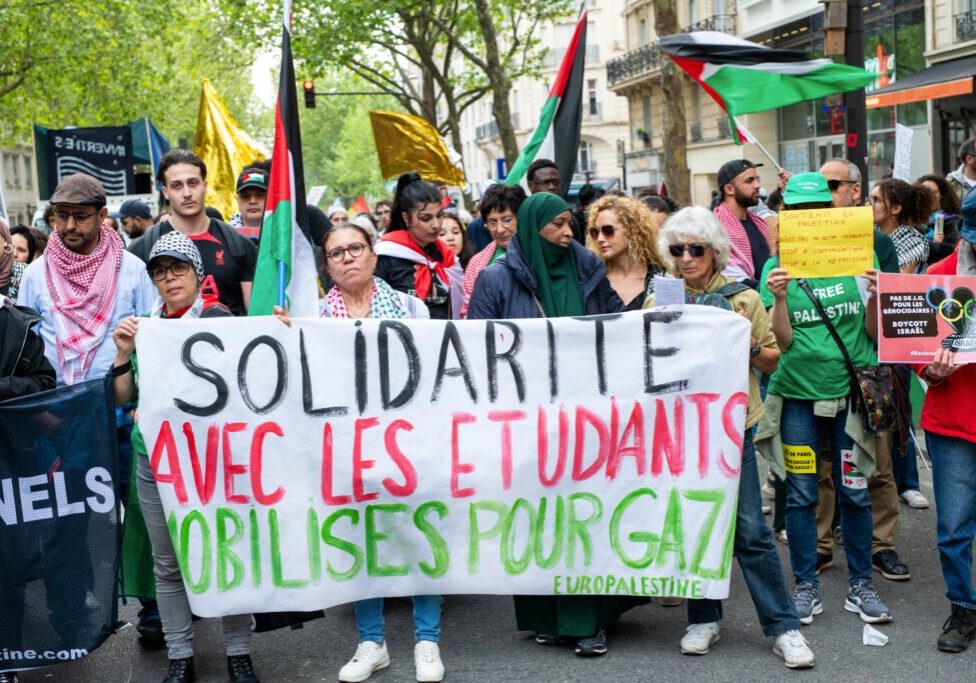Australia/Israel Review
Europa Europa: The Daesh Dilemma
Dec 22, 2015 | Douglas Davis

Douglas Davis
Daesh – also known as ISIS, ISIL and/or Islamic State – consists of a bunch of medieval psychopaths (add adjectives, as required). But how does Europe, which is bearing the brunt of the refugee flight, solve a problem like Daesh? Not as easily as the current crop of Europe’s political leaders seem to believe.
Angela Merkel is inhibited by constitutional limits (Germany is providing logistical support rather than combat action in Iraq and Syria). In any event, Merkel overplayed her hand – and risked her political life – by opening her country’s borders to hundreds of thousands of refugees, ostensibly from Syria. Her popularity has tumbled in the past three months. Merkel’s problem is compounded by the fact that at least some of the refugees were involved in the multiple attacks on Paris, which persuaded President François Hollande to ratchet up France’s bombing of Daesh training camps and command centres at its Raqqa headquarters, while appealing for support from his European partners.
UK Prime Minister David Cameron answered Hollande’s call by investing heroic efforts to ensure a parliamentary majority for extending Britain’s anti-Daesh bombing campaign from Iraq to Syria. With a fingertip Conservative majority, and anticipating a small number of rebels from his own side, Cameron persuaded no less than 66 opposition Labour legislators to defy their far-left (some say loony), neo-pacifist leader, Jeremy Corbyn. But you don’t have to be Corbyn to oppose bombing Daesh. People are perplexed that Europe’s military ability – pitifully diminished but still far better trained, armed and funded than Daesh – appears incapable of dealing decisively with their adversaries.
They worry about the role of Russia, which has stepped neatly into the space vacated by America; about the role of Turkey; about the competing claims of Iran and Saudi Arabia, and, not least, they worry that the war against Daesh, as in other recent conflicts – Iraq, Libya, Mali, Afghanistan – will produce more sectarian chaos than strong-man stability. Now, as in those previous conflicts, there is no clear objective, strategy or end-game.
The wars in Iraq and Libya toppled a brace of sclerotic tyrants, but their departure created a vacuum which left their countries fatally wounded, in the hands of competing sectarian militias, unlikely ever to emerge as nation-states within their old colonial borders. Libya, despite “peace deals”, will probably be split between its two major warring tribes in Misrata and Zintan; Iraq is on the way to breaking into three discrete entities (Shi’ite, Sunni and Kurdish); Syria, already shattered, could wind up as four (Sunni-Jihadi, Alawite, Kurdish and Druze).
Despite all the experience that European leaders have absorbed over the past dozen years, they persist in projecting their own aspirations and ambitions on to the Middle East. They are convinced that the removal of the old tyrants will unblock a latent thirst for democracy. They refuse to absorb the twin lessons of the “Arab Spring”: firstly, that the man-in-the-souk has little regard for the concept of the nation-state (owing allegiance instead to the family, mukhtar, clan and tribe); secondly, that Arab polities appear incapable of embracing pluralistic societies.
Yet, Europe cannot face the fact that its finest humanitarian intentions produce more chaos than stability; more bloodshed than coherence; more death than democracy. That said, it has become impossible to stand aside and hope the mess can be contained within the region. The flood of refugees into Europe and the outburst of violence in Paris tell them it will not. Equally, knowing that their bombing runs are of limited value, and refusing to commit ground troops, they cannot bring themselves to decide what they can do about it.
Even if – highly unlikely – they defeat Daesh and wrest back the land it has seized, how do they destroy the idealism it has spawned and which has aggressively metastasised around the world. If they rout Daesh in Syria and Iraq, it pops up as Jama’at al-Islamiya in Egypt, Boko Haram in Nigeria, al-Shabab in Somalia, Hezbollah in Lebanon, Hamas in Gaza…
And it pops up in Europe, too, as the French have found at terrible cost. Not only are Daesh activists embedded with the stream of refugees, but local Islamists are reported to be working hard to radicalise the non-radical refugees. More than that, there are growing tensions within and between Muslim groups already settled in Europe. Last month, a reliable Shi’ite source told me, Britain’s MI5 intelligence agency warned Shi’ite mosque leaders in Britain of a likely threat against them and urged increased security vigilance. Jews have long since learned the lesson.
In Britain alone, about 800 young Muslims, men and women, are believed to have travelled to Syria. About half have returned and intelligence chiefs have warned that a major terrorist attack on British soil is almost certain. Most worrying are polls which show that one in four British Muslim men aged 18 to 34 is sympathetic to the cause of Daesh.
Confused? The predicament of the Middle East – and Europe – can be summed up in an 18th century English nursery rhyme:
Humpty Dumpty sat on a wall,
Humpty Dumpty had a great fall,
All the king’s horses and all the king’s men
Couldn’t put Humpty together again.
Tags: Europe






